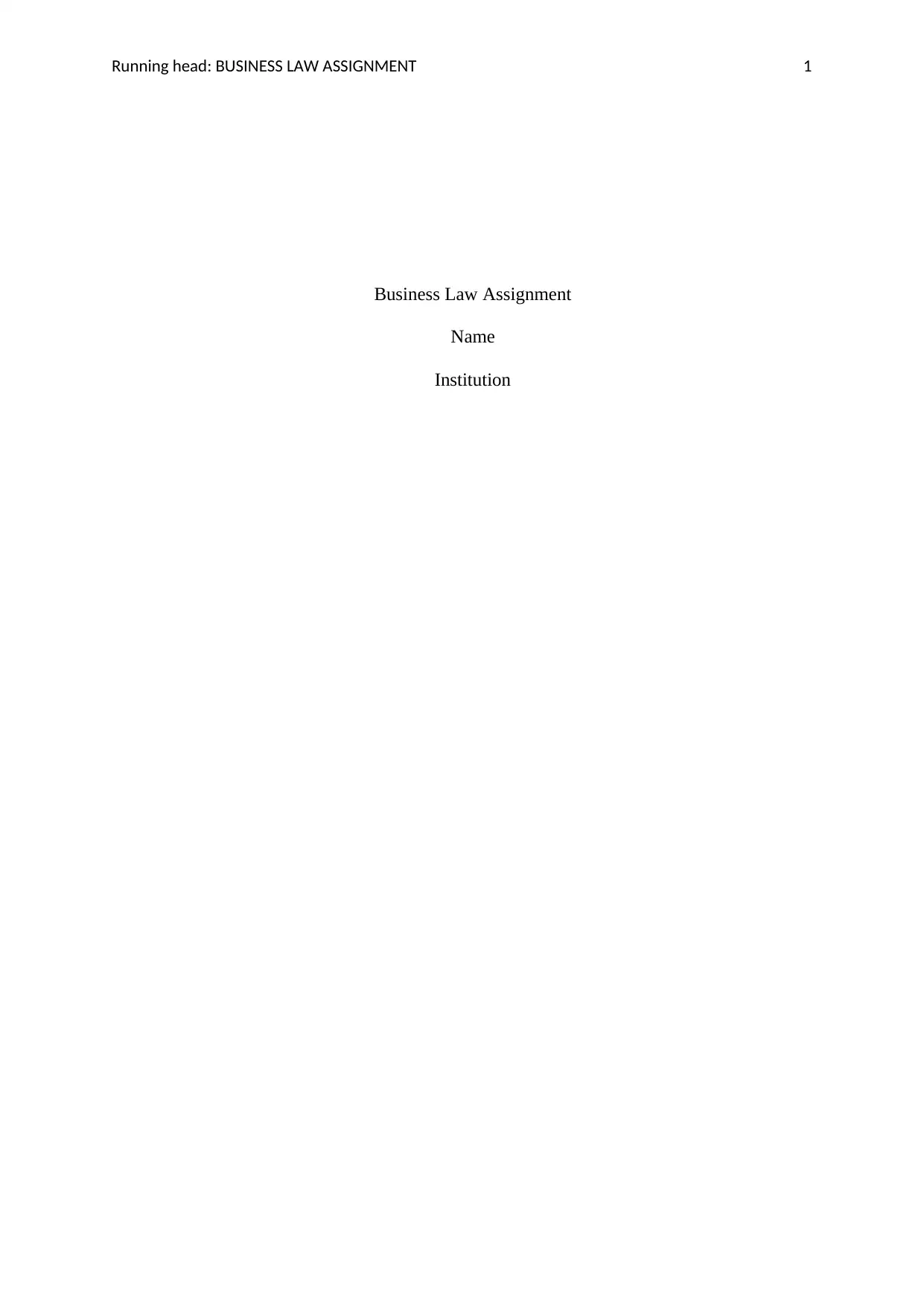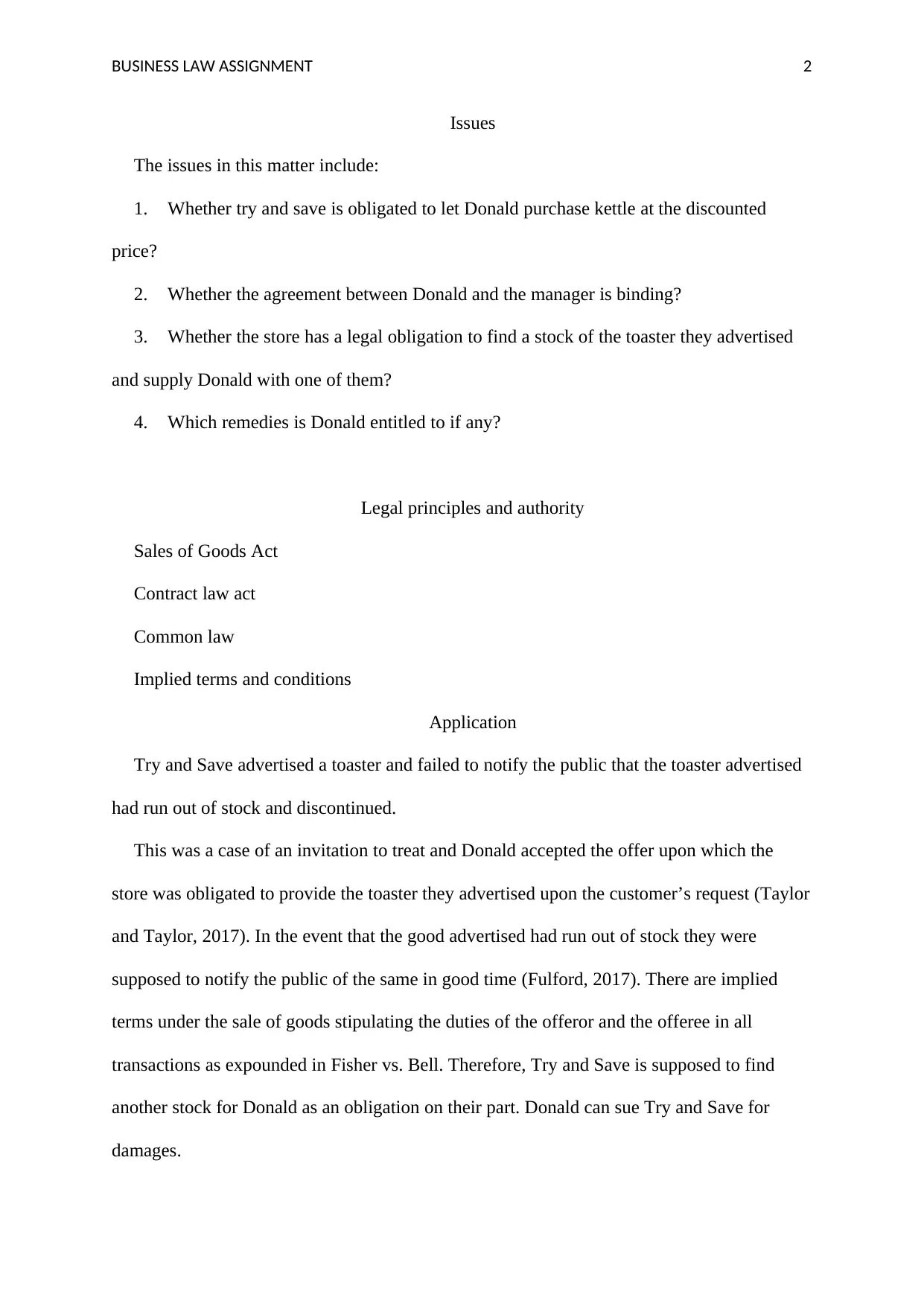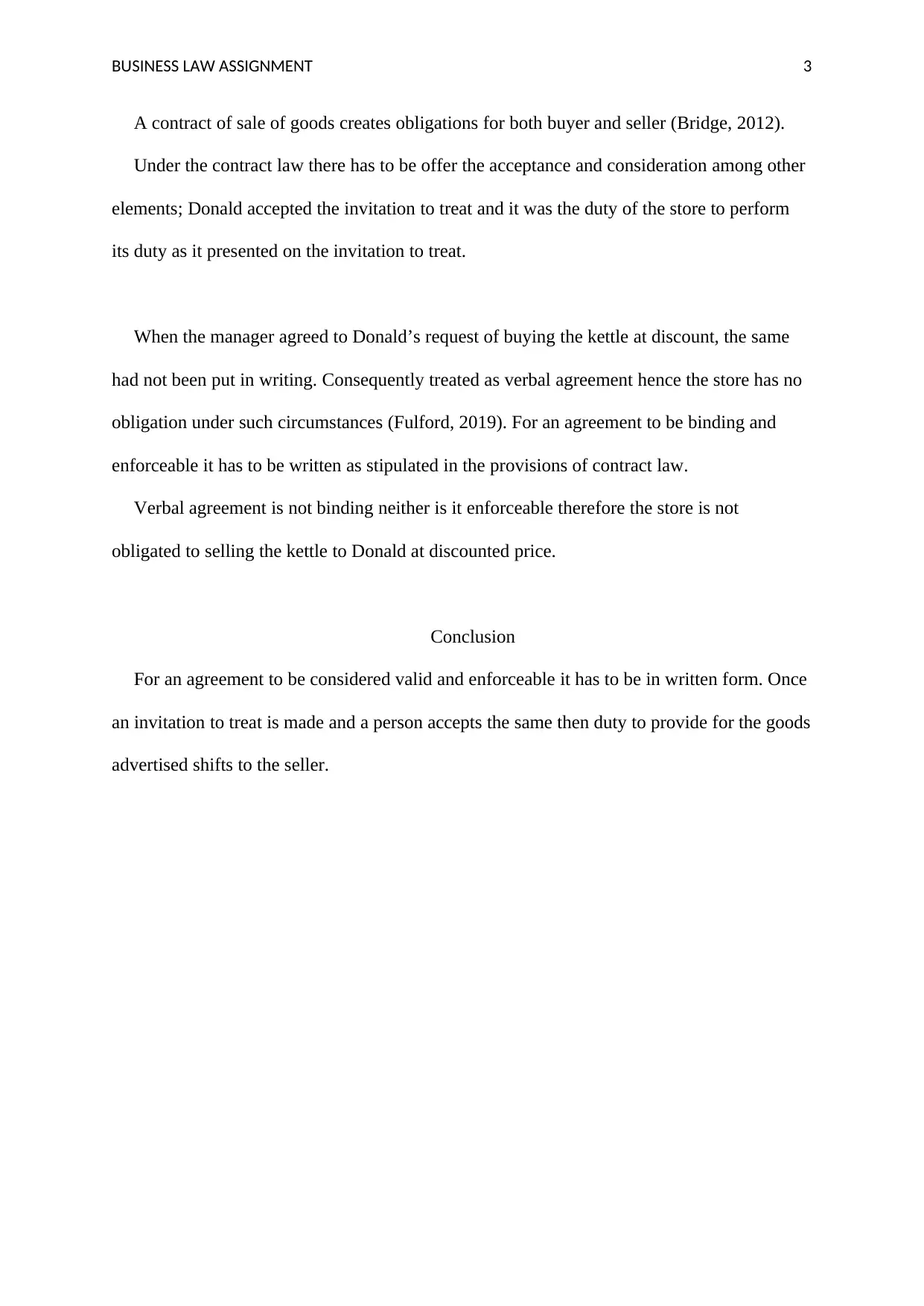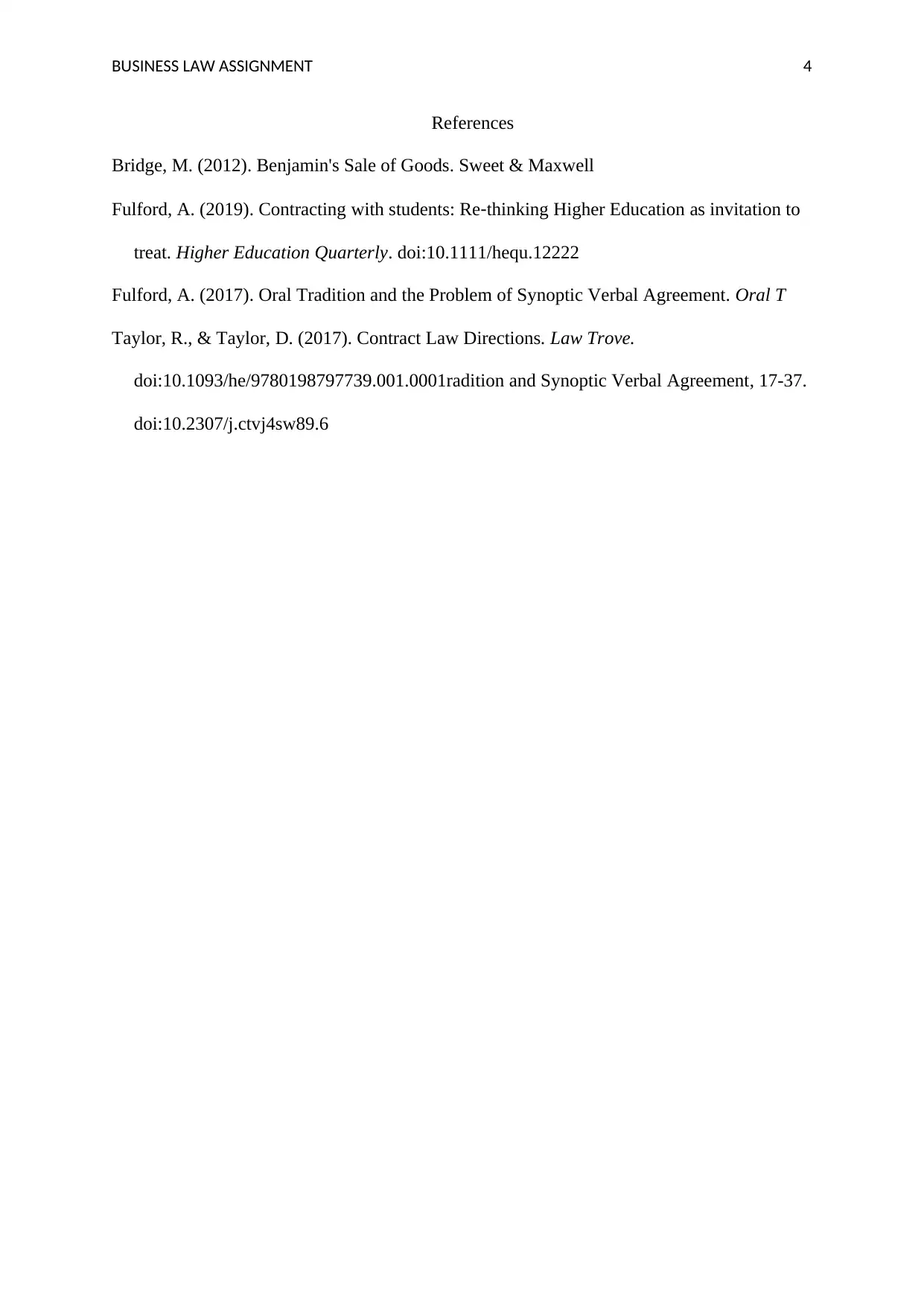Business Law Assignment: Analysis of Contract Law and Sales of Goods
VerifiedAdded on 2022/11/07
|4
|542
|61
Report
AI Summary
This report provides an analysis of a business law assignment, focusing on contract law and the sales of goods. The assignment explores scenarios involving a store's obligations, specifically regarding an advertisement for a toaster and a manager's agreement to sell a kettle at a discounted price. The report delves into the legal principles of the Sales of Goods Act, contract law, and common law, examining issues such as invitations to treat, implied terms, and the validity of verbal agreements. It discusses whether the store is obligated to fulfill the advertisement, the binding nature of the manager's agreement, and the potential remedies available to the customer. The analysis considers the importance of written agreements, the duties of the offeror and offeree, and the implications of failing to notify customers about stock shortages. The conclusion emphasizes the need for written agreements to ensure enforceability, and the report references relevant legal authorities and case studies.
1 out of 4










![[object Object]](/_next/static/media/star-bottom.7253800d.svg)